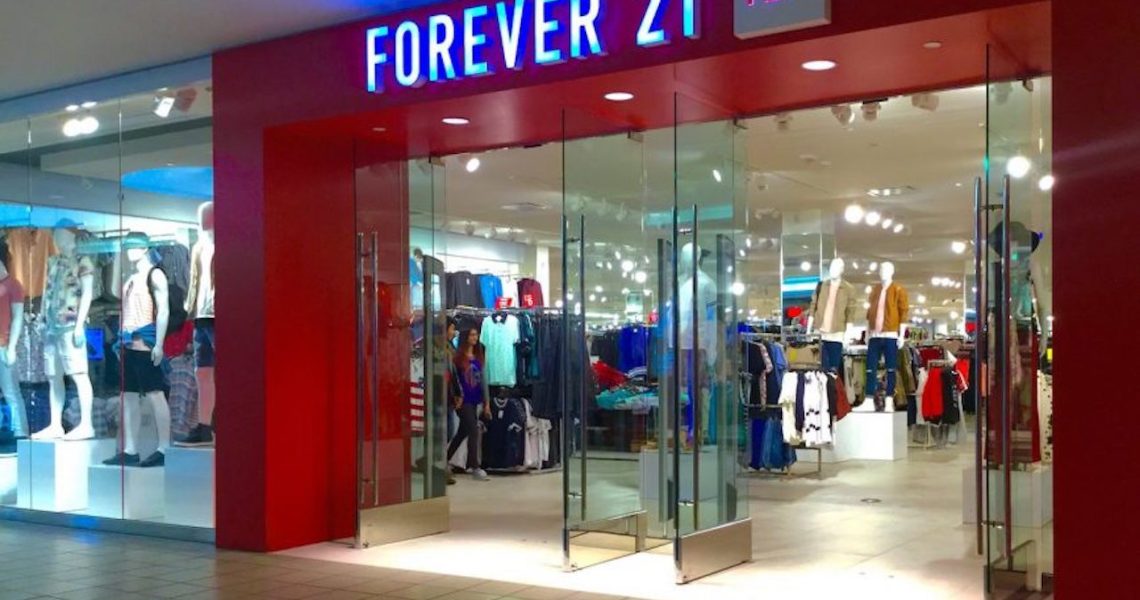When Forever 21 went bankrupt at the end of 2019, it was clear what the issues were: The company had over-extended itself to 800 stores without the foot traffic and revenue to support them. But Authentic Brands Group, which just acquired the company in a joint venture with Simon Property Group and Brookfield Property Partners, has a plan in place to turn things around.
A representative for ABG said there are two main priorities for revitalizing Forever 21: restructuring the brand’s brick-and-mortar footprint and cleaning up its supply chain. The company is first focusing on revamping Forever 21’s store investment, potentially by switching from an owned store model to something like a franchise model, where each store is licensed out to an individual owner.
The focus on brick-and-mortar is part of the reason that Simon and Brookfield were brought in as partners. While ABG already has experience with brick-and-mortar retail, running brands like Aeropostale, Nine West and Nautica, Simon and Brookfield both specialize in it, and Simon is already Forever 21’s main landlord.
After that, ABG is going to focus on Forever 21’s supply chain, finding ways to make it more streamlined, less wasteful and able to expedite speed-to-market, while also avoiding some of the pitfalls of fast-fashion production. This step is still in the planning stages and details are not yet available.
ABG has grown in the last 10 years from a little-known startup to a 50-brand powerhouse with $10 billion in annual sales. Its acquisitions have been of increasingly larger and diverse companies. In 2019, ABG acquired its first media brand, Sports Illustrated, and Barneys. Given the recent acquisitions, its debt situation is unclear. In 2016, the company had $450 million in debt, and as of 2019, it was valued at $4 billion including debt.
But Forever 21 provides access to an audience that few ABG brands have: Gen Z. An ABG rep said that most of the company’s current portfolio is focused on a millennial audience, and Forever 21’s built-in Gen-Z audience is one of the primary reasons it was acquired.
“Forever 21 is a powerful retail brand with incredible consumer reach and a wealth of untapped potential,” Salter said in a press release statement.
Ad position: web_incontent_pos1
Unlike ABG’s previous joint venture with Simon and Brookfield, each company is acquiring a portion of every part of the business. When the three joined together to buy Aeropostale out of bankruptcy in 2016, ABG took 100% control of the brand’s intellectual property, while the other two split operations. For Forever 21, ABG and Simon will each get 37.5% of everything, and Brookfield will get the last 25%.
Whether ABG can actually make good on these plans is yet to be seen, but if ABG wants to use Forever 21 to go after Gen Z, it needs to give young customers a compelling reason to keep shopping there.
“Any restructuring of Forever 21 by ABG needs to be done after they take the time to really understand what the future experience of the retailer will be,” said Alana Eversole, executive development director at brand and retail consultancy Fitch. “Companies like ABG have a reputation of coming in to purchase these failing brands, but often with a focus on operations and finances. To save Forever 21, they need to focus on the brand’s loyalists. If they can narrow into their consumer and stop trying to be a brand for all people, they have a chance of creating a cult following that will stay with them for years to come.”




